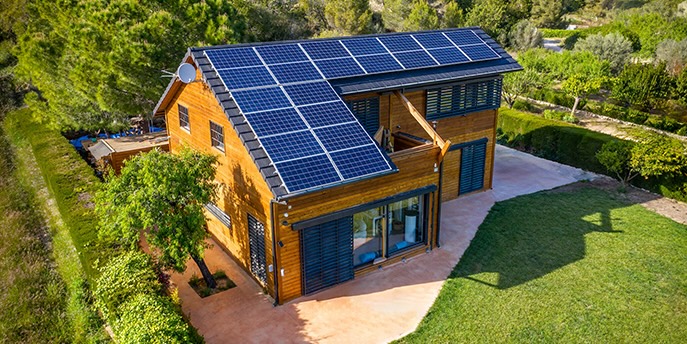Despite a few clouds of uncertainty, the United States solar industry continues to have a strong growth outlook. A record setting 11 gigawatts-direct current (GWdc) of solar manufacturing capacity was installed in the first quarter of 2024, marking the industry’s second-best quarter after the final quarter of 2023. Photovoltaic (PV) solar accounted for 75% of all new additions to electricity-producing capacity, continuing to be the predominant form of new generating capacity.
On the contrary, residential solar dropped 25 percent year-over-year due to the segment’s ongoing struggles with high financing rates and California’s recent transition to net billing for solar systems installed after April 2023. Looking ahead, it is expected that recovery will start in 2025, growing by 10 percent on average over the next five years as retail rates trend upward, increasing potential savings for residential customers.
Homeowners and builders alike continue to take advantage of solar leases or power purchase agreements (PPAs) (i.e., “solar agreements”), in which customers essentially “lease” solar power from a third-party solar provider without the upfront cost of purchasing an entire system.
5 Tips for Guiding Your Clients
Though over 4.2 million homes have adopted solar power as of 2024, it is known to create unique challenges when selling a home. Some issues that sellers have experienced include:
- Buyers shying away from a house because of the solar agreement (due to issues like lease length, lease payment, lease contracts, maintenance considerations, technology obsolescence and more)
- Buyers who may not meet the solar company’s qualifications to lease
- Potential issues involving the proper transfer of the solar agreement
If you’re working with a seller who currently owns a home with a solar agreement, you may be able to help them navigate complications with the sale. While every situation is different, here are a few steps to consider:
1. Start early. If you represent the seller, ask them early in the selling process whether the property is tied to a solar agreement. The terms for transferring a solar agreement may impact the marketability of a property, and disclosure to potential buyers is important.
2. Request a copy of the solar lease agreement. Ask your client for a copy of the current solar agreement. If they don’t have one, they should request it from their solar company.
3. Seek advice. Unfortunately, misconceptions about solar agreements are common. It’s important that buyers and sellers fully understand the terms of their solar agreement, including its transfer rights and requirements at the time of the sale. Many solar companies have dedicated representatives to assist with the lease transfer process, but you may wish to advise your client to consult with an attorney first.
4. Cover all your bases. When selling a home subject to a solar agreement, it helps to work with a trusted company like Old Republic Title. We can alert you to potential title problems, such as an unrecorded solar easement and other possible title issues that need to be addressed prior to closing.
5. Keep lines of communication open. Early in the process, provide your closing team with as much information as possible about the transaction. What they don’t know could cause delays to the closing process.
If you would like to learn more about how you can guide the sale of a home subject to a solar agreement, or find out what information your closing team might need, contact your Old Republic Title representative today.




